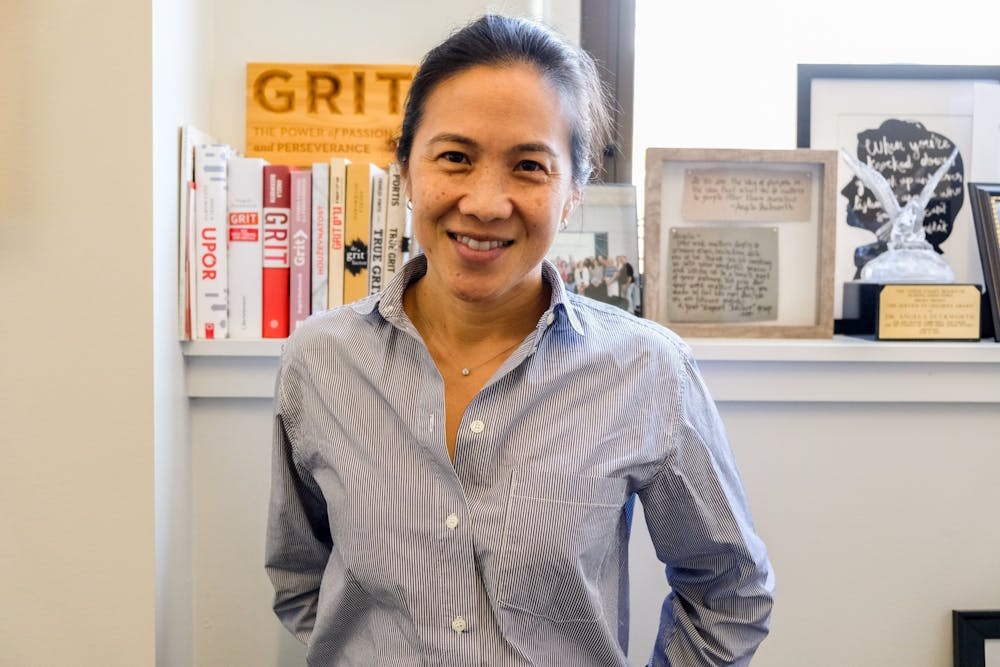While many students are currently preparing their course schedules for the upcoming semester, some had to apply for selective courses long before Advanced Registration began.
These courses, many taught by renowned professors, require special applications which are used to select students from large applicant pools and create diverse classes. While the exact type of application varies by class, students said they appreciated having different perspectives in their courses but would prefer more transparent and flexible application processes.
Management professor Adam Grant's "Organizational Behavior" class, MGMT 238, which is generally offered in the fall, is one of Penn's most popular selective courses. Grant, who has been recognized as one of the world’s 10 most influential management thinkers, is a vocal critic of competitive culture but has a highly selective application process for his courses — in 2017, over 250 people applied for only 70 spots, The Daily Pennsylvanian reported.
In addition to reading writing samples, Grant tries to choose students from a range of backgrounds and personality types.
“The goal was to create a class with diverse interests, experiences, and viewpoints,” Grant wrote in an email to students who failed to gain admission in 2017.
Nursing and Wharton senior Grace Nie, who took "Organizational Behavior" last fall, said she believes her unique background as a Nursing student helped her gain admission.
“I think being the only Nursing kid in there, that was probably one of the factors why I got selected,” Nie said.
Nie added that while Grant also asked her and her classmates to refer friends to the course, he told them referrals are only used if a decision comes down to two similar applicants.
"There are a lot of different factors, and it’s not exactly a transparent process, I would argue," Nie said. "A lot of people complain about that, but [Grant] didn’t do a great job explaining it."

Management professor Adam Grant's "Organizational Behavior" class, MGMT 238, which is generally offered in the fall, is one of Penn's most popular selective courses.
However, Nie said the application process helped build community among admitted students.
"There’s this special pride going on almost, where we want to believe that we’re something special because we got into this class," she said.
Unlike Grant, Psychology professor Angela Duckworth selected students for her new course “Grit Lab: Fostering Passion and Perseverance” through a mix of application and lottery — while interested students had to complete a short written application, admitted students were selected randomly from the applicant pool.
“I don’t even know if [application] is the right word, because we didn’t read them and select the best one," Duckworth said.
Duckworth added that she received hundreds of applications for 65 spots in her course this spring, which will focus on techniques for achieving long-term goals. She said she chose to have an application process rather than using the Penn InTouch assignment system alone to attract more committed students.
"I did want students to at least be motivated enough to reflect on why they were taking the course,” Duckworth said.
Penn Global seminars also generally require applications that include both written portions and interviews. Nursing sophomore Candy Greczylo, who took a Global Seminar titled “Prague: The Making of a European Nation” last spring, said students can only apply to one Global Seminar each semester, which limits flexibility.
“If you don’t get that one, you don’t have another option for a Global Seminar," Greczylo said, "I applied to another one and didn’t even get an interview."
Greczylo added that she believes the applications are used to select students from different Penn schools, with a preference for those who have never taken Global Seminars before.
“I think the first thing they look at is the distribution of the schools,” Greczylo said, adding that she appreciated the opportunity to make friends outside of the Nursing School.
She said while the Global Seminar she took was offered through the College of Arts and Sciences, when she applied to a Nursing Global Seminar she was not admitted.
"Since it’s a Nursing course, they want people from the College, Engineering, and Wharton,” she said.
However, Greczylo believes this trend towards diverse academic backgrounds is positive.
“I think [Global Seminars] are more popular now, so I think more people will look at what fits into their schedule and ask themselves, ‘Which one would I like to take?’ even if it’s not related to what they’re doing,” she said. "I have some friends that, based off of my recommendation to do them, they’re applying to Global Seminars that are totally unrelated to what they’re studying.”









